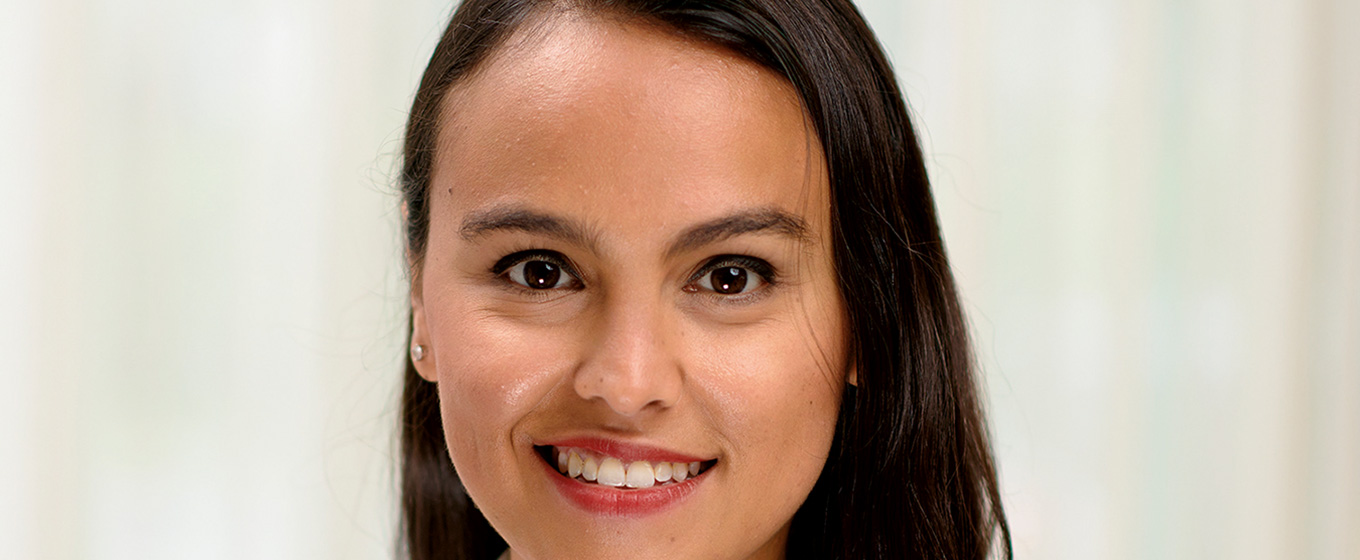Digital Transformation in International Student Recruitment and Higher Education Marketing. Meet the experts: Alejandra Otero

ALEJANDRA OTERO is the founder & CEO at geNEOus - Education Marketing Experts With A Purpose. They optimise marketing & student recruitment strategies to empower innovators.
She created geNEOus with the aim of reshaping the future of education by giving support to educational institutions in the integration of marketing and admissions solutions in line with the expectations of the 21st century.
Prior to that, Alejandra was a higher education intrapreneur in the USA and Europe with roles within the Marketing, International Relations, and Admissions Departments.
She has received certifications from Google and HubSpot in the fields of marketing, sales, and education.
Alejandra is also a speaker on subjects such as digital innovation, marketing automation, international education, and student recruitment/ enrollment enablement. She is now undergoing a 2-year mandate as an elected member of the Marketing & Recruitment Steering Group of the EAIE (European Association for International Education), after having been re-elected following a 2-year mandate as an Associate of the same expert community.
As artificial intelligence continues to advance, how do you foresee its impact on higher education marketing strategies? Are there specific areas or aspects within marketing that AI is particularly poised to transform?
AI is anticipated to play a pivotal role in the evolution of higher education marketing strategies, revolutionising data-driven decision-making for institutions to implement more efficient and effective tactics, increasing prospective student engagement and enrolment. Let's look at this from different angles:
- Organic and Paid Social Media: AI tools can be used to monitor social media mentions of the institution, sentiments about the brand, trending topics among prospective students, and SEO performance to improve brand awareness. AI can also help to optimise the content of marketing campaigns, analysing what types of content resonate best with certain audiences and adjusting the campaign accordingly. (e.g., A/B testing, keyword optimisation, etc).
- Predictive Analytics: AI algorithms can analyse large amounts of data from various sources (e.g., social media, websites, and student databases) to predict trends and thus optimise marketing strategies on prospective students' behaviour, interests, and needs. This can help institutions target their marketing efforts more effectively and efficiently by identifying key segments of students who may be more interested in certain programmes, or topics, focusing resources on those most likely to enrol or engage.
- Personalisation: AI can also automate many routine tasks (e.g., email marketing, social media posting, customise website content based on a visitor's preferences or past browsing behaviour) delivering a unique user experience that is more likely to convert prospects into students. Such actions can not only help marketing professionals increasing the effectiveness of efforts by refining campaigns and creating highly targeted messages, but also freeing up time to focus on strategic planning and creative tasks.
Still doubting whether AI in higher education marketing is a must, a good to have, or a no-go? Its adoption can undoubtedly lead to better understanding potential students and enhancing interactions by personalising their
In what ways can AI-driven technologies enhance the effectiveness of higher education marketing campaigns? Can you provide examples of successful AI implementations that have resulted in improved student engagement, enrolment rates, or brand perception?
Following the previously mentioned capabilities, AI-driven technologies have the potential to greatly enhance the effectiveness of higher education marketing campaigns through AI-powered chatbots and virtual assistants. These tools provide immediate responses to students' questions, share information about the institution 24/7, and automatically guide them through their personalised application process.
Let's look at some examples of how AI is being used in higher education marketing in the USA by tailoring content to individual students, predicting behaviours, and automating responses, thus engaging with prospective students more effectively and efficiently:
- Georgia State University (GSU) has implemented an AI-powered tool called "Pounce" which uses Machine Learning algorithms to encourage potential students to fulfil their pre-matriculation tasks, reducing by 21% the number of students being accepted but not completing their enrolment. It also provides personalised responses to applicants' frequently asked questions.
- Taylor University has boosted student recruitment and retention through the use of predictive analytics via Salesforce's Einstein for Higher Ed. Through the visualisation of data related to the behaviour and interests of prospective students with higher chances of applying, they have reduced financial resources while improving internal processes and shifting human efforts towards qualified data inputs. AI-powered personalisation and targeted marketing campaigns have been key success factors for enrolment management.
- Bolton College has saved 80% of its video production time and substantially increased the number of videos generated through the use of Synthesia. By providing the tool with the script and animations, the AI-powered platform automatically creates a video version of an avatar presenting the topic. Although this initiative was tailored to support current students, it may equally be used for prospective marketing activities.
These are just a few examples, but as AI technology continues to advance, it will undoubtedly continue to provide even more innovative ways to enhance higher education marketing campaigns.

